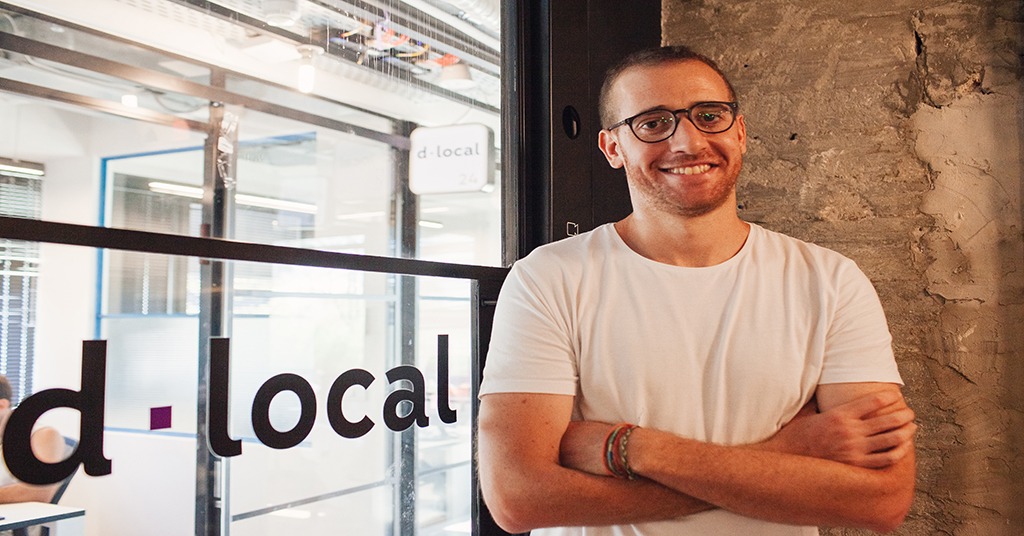The executives of Uruguay’s first fintech unicorn shared their views on local payment problems, role of emerging markets in global e-commerce, and many more

Fintech in LATAM: dLocal’s executives on payment challenges & solutions. Source: pixabay.com
PaySpace Magazine has reached out to dLocal’s CEO Sebastian Kanovich and VP Growth Michel Golffed to ask them about the current state of fintech in Latin America, major payment challenges, and future plans.
Could you give us a short introduction to fintech in Uruguay?
Uruguay has recently exported some highly innovative companies. With a population of only 3.4 million, the size of the market is not very attractive. Still, start-ups like MonkeyLearn, an AI platform, or PedidosYa, a delivery platform, and a couple of other Uruguayan innovators have made it into the news in the last couple of months.
The challenges Uruguayans faced in 2016 when trying to buy abroad were multiple: from logistics to payments, the user experience was not even close to that of someone buying their Christmas gifts on Amazon in the US. One of the friction points was payment. How to pay for your shopping if you don’t have an international credit card or PayPal, as everyone has in Europe?
The size of the market in Uruguay forced us to think globally. We started by integrating Boleto Bancario in 2016, the most popular cash-payment method in Brazil so that global sellers could start accepting alternative payment methods. We quickly expanded into other LATAM countries in the same year and saw some similarities in other emerging countries, in Asia, the Middle East, and Africa. We have become experts in emerging markets, analyzing customer behaviors, local payment restrictions, and unique local regulations. We address these challenges way before they become too problematic to be resolved and offer solutions to enable our global merchants to pay and get paid in emerging markets.

Sebastian Kanovich, dLocal’s CEO. Source: dLocal
Can you name the local payment challenges you’ve faced? How have you dealt with them?
Unbanked consumers represent millions in emerging markets. The explanation behind this includes cultural behavior and stricter rules to be eligible for a credit card. Many of these markets have populations where less than 10% of the population has access to global credit cards.
63% are either unbanked or underbanked, 95% do not hold an international credit card. To grow in emerging markets, merchants need to accept local payment methods. For instance, merchants in India that only take traditional international credit card payment online are missing about 80% of the market opportunities as consumers would rather pay with other systems.
In LATAM over 60% of all e-commerce spend regionally uses local payment methods. dLocal allows this immense group of over 3 billion people from emerging economies to fully integrate into the global economy. At the same time, big tech companies and online merchants are seeking new growth opportunities, as their domestic markets are getting saturated.
We know our markets and share our local expertise with our merchants. From cash payment solutions like Boleto Bancario in Brazil or Oxxo in Mexico to UPI in India or mobile money like mPesa in Africa. The diversity and difficult access to local payment methods, from cash to wallets or bank transfer systems, makes us experts in payments in emerging markets
At dLocal we are more than a payment solution provider for our merchants; we are a local guide, a partner, and an advisor in Asia, Africa, and Latin America. When our merchants are exposed to unfamiliar customer behaviors, local payment restrictions, and unique local regulations, we address these challenges way before they become too problematic to be resolved. We simplify the market entry with a very efficient but simple API, which is like a Plug & Play for our merchants.

Michel Golffed, dLocal’s VP Growth. Source: dLocal
What is the role of emerging markets in global e-commerce?
European, US, and Chinese e-commerce companies are struggling to expand in their own mature markets and are forced, and at the same time attracted, to seek a neutral ground where they can focus their resources on achieving growth. At the same time, emerging markets like APAC, LATAM & MENA have rapidly growing online shopping audiences, turning these regions into real blue oceans.
Emerging markets are the open battleground for Silicon Valley, EU, and Chinese firms searching for their next billion customers. India has faced extraordinary growth and social change; Latin America has 655 million people who are rapidly embracing eCommerce and so is an extremely profitable market for merchants looking to expand internationally.
In general, emerging markets show growth of +35% and are the world’s fastest-growing market for mobile subscribers. But, in order to grow in emerging markets, merchants need to accept local payment methods. dLocal is a cross-border payment platform on a mission to close the payments innovation gap that exists between developed countries and emerging economies.
Do emerging markets have the chance to outpace developed ones? Why?
Let’s have a look at the numbers: India’s UPI (which is their local real-time payments system), processed over a billion transactions in a single month last year. And will do over 25 billion transactions this year.
Emerging markets have a higher rate of economic growth, larger populations, and growing technological investment levels compared to the developed economies.
The rate of economic growth in Emerging Market and Developing Economies (EMDE) is over 4% (China and India even higher around 7%), while that of the advanced economies is around 2% (in the Euro area it is projected at 1.8% in 2017 and 2018).¹
This means that the speed of growth is at least twice as fast. When it comes to e-commerce, emerging markets are already growing at a faster rate than North America and Europe. Asia Pacific has seen a growth of 25% in retail e-commerce sales in 2019, followed by LATAM and MEA with a growth of 21.3%. North America and Europe have much lower numbers: 14.5% and 10.2% respectively, which is considerably lower than the worldwide average of 20.7%.

The pandemic has certainly accelerated new habits and e-commerce adoption. Source: pixabay.com
How would you describe the pandemic’s impact on e-commerce adoption in Latin America?
The pandemic has certainly accelerated new habits and e-commerce adoption worldwide, especially in emerging markets like Latin America. Before the lockdown in the different regions, consumers, out of fear or poor adoption, even if they had a credit card, did not use it online. Today there is no option, and that need breaks the fear of using a credit card in electronic stores.
Visa reported earlier this year that in the first quarter, and contemplating the March quarantine, 13 million Latin Americans who already had a Visa card, made their first-ever online purchase between January and March in key Latin American and Caribbean markets and for the first time in over 15 months.
dLocal’s single API solution is super easy to implement and deploy at scale for companies that need to adapt to new scenarios or open new markets. Thanks to our solutions, merchants from Europe, China, and the U.S. can leverage the growing economies outside their domestic markets and keep growing as the world recovers from the pandemic.
How did you come up with the decision to launch dLocal?
We started in Brazil, with the most popular cash-payment method, the so-called Boleto Bancario. We noticed that one of the major problems was not how to convince people to buy, but how to facilitate payment for them. And our merchants had the same needs in other countries, so we quickly started expanding, making local payments doable for international companies without the need to establish local entities themselves.
Via ‘pay-ins’, we enable our merchants to reach more than 95% of the consumers in emerging markets, by accepting the payment method which locals rely on every day. Via ‘pay-outs’ we enable our merchants to pay their local sellers and partners in the way they expect to be paid by depositing the funds in the local currency, directly to their local account.
Are there any dLocal’s latest technologies or solutions you’d like to tell us about?
We do not focus only on the most popular payment methods, but also on payment behaviors. That’s why we also include very popular installment solutions in countries like Argentina or Chile, for example, the so-called Pay Later option.
With global e-commerce and cybercrimes on the rise, one of the greatest threats merchants face in today’s digital environment is revenue loss due to chargeback fraud. In March for instance, during the first weeks of the pandemic, cybercriminals ramped-up social engineering attacks by 667%. We know how important cybersecurity and trust are, and we are constantly improving our Fraud Prevention module, dLocal Defense.
Our fraud model is fed with behavioral data from +450 emerging markets merchants, combined with external tools, which makes it very efficient at detecting and preventing fraud. The model is designed to prevent fraud while taking care of authentic transactions

dLocal has people on the ground from Chile to Shenzhen and from Tel Aviv to San Francisco. Source: pixabay.com
Can you tell us about the company’s journey into Asia and Africa?
The journey is similar in every country we expand to. dLocal has historically always expanded to countries where current customers need a payment solution, be it ‘pay-in’ or ‘pay-out’. Our success is based on our local footprint – we have people on the ground from Chile to Shenzhen and from Tel Aviv to San Francisco.
Speaking of dLocal’s rapid expansion, would you consider European emerging markets? Why?
We are not going to exclude any opportunity that shows up, as long as we can bring our expertise in payments in emerging markets. We have announced a tough roadmap, expanding to 13 countries in the next 18 months, which are mainly focused in Central America, Asia, and Africa.
How do you feel about dLocal becoming a ‘unicorn’? What are your plans for the nearest future?
We are proud of the last four years and we celebrate this milestone, but our focus remains on the customer. We certainly wanted to raise some funds to accelerate growth, we were not necessarily looking to become a unicorn, we were looking to find the right investors to accelerate growth and bring value to the company.
dLocal has been a profitable company since its inception because it is focusing on a true area of need. Our new funding will be utilized to expand into 13 new markets in the next 1 ½ years while continuing to introduce product upgrades and expansions.
SEE ALSO:









